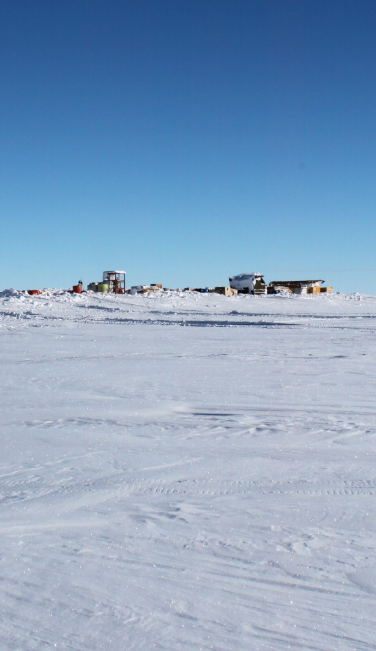Antarctic lacks key monitor
 A new study says there is an urgent need to monitor chemical pollution in Antarctica.
A new study says there is an urgent need to monitor chemical pollution in Antarctica.
The research, published in The Lancet Planetary Health, suggests chemical pollution monitoring frameworks are lacking in the Antarctic and Southern Ocean region.
It is particularly concerning given that these regions serve as barometers for planetary health.
The study recommends that Antarctic Treaty consultative parties should extend their national chemical monitoring programs to their Antarctic research stations and Territories.
The study outlines four priority research and research facilitation gaps, which include utilising Antarctica as a natural laboratory for the identification of persistent and mobile chemicals, investigating chemical behaviour, fate, and effects in changing Antarctic ecosystems, assessing the toxicological sensitivity of endemic Antarctic biota, and implementing sustained circumpolar chemical surveillance.
The UN has identified global chemical pollution as one part of a ‘triplet planetary crisis,’ alongside climate change and biodiversity loss.
As such, the study calls for a step-change in the way chemicals are regulated globally, and for policymakers to have access to scientific assessments similar to those provided by the Intergovernmental Panel on Climate Change.
Professor Susan Bengtson Nash, who led the study, says that pollution monitoring frameworks are lacking in the Antarctic and Southern Ocean region, and global efforts are often neutralised by the lack of legal recognition of individual Antarctic Treaty parties' international commitments in the region.
“Timely progress in the field of Antarctic chemical research calls for Antarctic Treaty consultative parties to transcend what is legally required of them, and to extend their national chemical monitoring programs to their Antarctic research stations and Territories,” Professor Bengtson Nash said.
“Holistically designed chemical research and monitoring programmes, that encompass ecological drivers of change, will facilitate the construction of novel longitudinal datasets that can be used to answer vital research questions for the protection of Planetary Health.”
The full study is accessible here.








 Print
Print